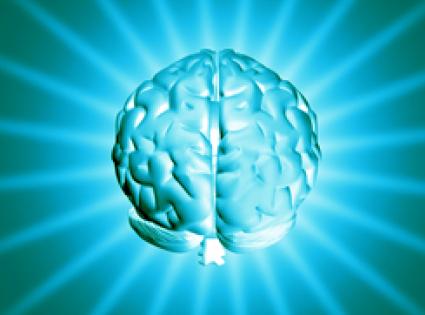Curriculum

 Students are to complete 60 credits distributed as follows: 15 correspond to the End of Master’s Degree Project/Paper; 5 to the only compulsory subject to be taken by all the students of the Master’s Degree, which is Research Methodology; and the remaining 40 are elective.
Students are to complete 60 credits distributed as follows: 15 correspond to the End of Master’s Degree Project/Paper; 5 to the only compulsory subject to be taken by all the students of the Master’s Degree, which is Research Methodology; and the remaining 40 are elective.
The 40 elective credits are to be distributed as follows:
Each student must choose one of the four modules, taking the two compulsory subjects specific to the module of choice (10 credits) and three of the elective subjects offered within such module (15 credits). Students must also take three other elective subjects, which can be chosen from any of the modules and may be compulsory or elective (15 credits).
There are four modules:
- Logic
- Argumentation
- Philosophy of Science
- Philosophy of Language and Mind.

 These modules are aimed at providing students with a training structure, which is why they do not explicitly appear in the title of the Master’s Degree (all students will obtain the same degree: MASTER’S DEGREE IN LOGIC AND PHILOSPHY OF SCIENCE). In any case, as has been mentioned, the choice of modules and of most of the subjects within them is personal, although students will be able to benefit from the guidance of a tutor.
These modules are aimed at providing students with a training structure, which is why they do not explicitly appear in the title of the Master’s Degree (all students will obtain the same degree: MASTER’S DEGREE IN LOGIC AND PHILOSPHY OF SCIENCE). In any case, as has been mentioned, the choice of modules and of most of the subjects within them is personal, although students will be able to benefit from the guidance of a tutor.
To sum up, to complete the Master’s Degree students shall be expected to enrol in:
- The 5-credit compulsory subject: “Research Methodology”.
- The two 10-credit subjects that are established as compulsory within the chosen module.
- At least three 15-credit elective subjects from those included in the chosen module.
- The rest, up to 15 credits, can be completed by choosing any of the subjects included in the curriculum.
- 15 credits corresponding to the final degree paper/project.
EXAMPLE:
Supposing Marie Curie decided to enrol in our Master’s Degree and chose the Philosophy of Science module, she would have to study:
- The compulsory subject: RESEARCH METHODOLOGY.
- The two compulsory subjects specific to the Philosophy of Science module: ‘Philosophy of Science I: General Philosophy of Science’ and ‘History of Science’.
- Three elective subjects from the Philosophy of Science module to be taken in either of the two terms in which the Master’s Degree is structured.
- Any 3 elective subjects from the curriculum of the Master’s Degree. For example, she could choose Modelling Theory or Philosophy of Language I.
IMPORTANT: Marie can only choose from the range of elective subjects offered in the corresponding academic year, taking their timetables into account (she must also be aware of the unlikeliness that all of the elective subjects included in the curriculum are offered every academic year). The subjects chosen must be scheduled so that they do not overlap.
- Finally, Marie must present a final master’s degree paper/project. She will be able to choose any topic related to those addressed in the Master’s Degree, although the selected topic is expected to be related to the chosen module.
Adaptation
System for the transfer and recognition of credits:
ECTS credits from non-university official higher education training.
A maximum of 9 and a minimum of 0 ECTS credits shall be recognized from those obtained from Specific Degrees.
Credits obtained from postgraduate programmes (university-specific degrees or non-official master’s degrees) completed by students enrolled in this University Master’s Degree may be recognized provided that, together with the request for their recognition, they submit the official certification issued by the higher education institution stating that they have completed the credits they request to validate, together with the curriculum and activities attended, which must coincide with one or more of those included in this Master’s Degree. Each university shall establish the steps to be followed and the competent bodies to make such recognition effective.
 A maximum of 9 and a minimum of 0 credits can be recognized through work and professional experience certificates. The recognition of properly certified professional experience of students enrolled in the Master’s Degree shall be requested during the application process. For this purpose, the competent body shall consider the type of institution or company where the work was carried out, its duration and the job and duties performed.
A maximum of 9 and a minimum of 0 credits can be recognized through work and professional experience certificates. The recognition of properly certified professional experience of students enrolled in the Master’s Degree shall be requested during the application process. For this purpose, the competent body shall consider the type of institution or company where the work was carried out, its duration and the job and duties performed.
Rules established by the participating universities for the recognition and transfer of credits:
Continuance Rules
The continuance rules set by the universities establish:
- The maximum and minimum number of credits from the Master’s Degree that students may enrol in.
- The continuance conditions, meaning the minimum number of credits that must be earned in a first examination period to be able to continue their studies, the number of exams that can be taken, etc.
The following are the links to the continuance rules of the participating universities. Students shall be governed by the continuance rules set by the university they enrol in.
UNIVERSITY OF GRANADA
UNIVERSITY OF LA LAGUNA
UNIVERSITY OF SALAMANCA
UNIVERSITY OF SANTIAGO DE COMPOSTELA
UNIVERSITY OF VALLADOLID
UNIVERSITY OF VALENCIA
Mobility
The academic organization of the Master’s Degree shall start two mobility schemes:
- Grants and mobility programmes offered by the different institutions shall be adequately advertised both at the national and regional level, to facilitate access to the Master’s Degree from places that are not close to the university where the onsite sessions are to be held. The different administrations shall pay special attention to students who are enrolled at universities where these sessions are not held, so that they have access to mobility grants.
- Student mobility for ERASMUS exchanges shall be facilitated as established by the signatory universities.







